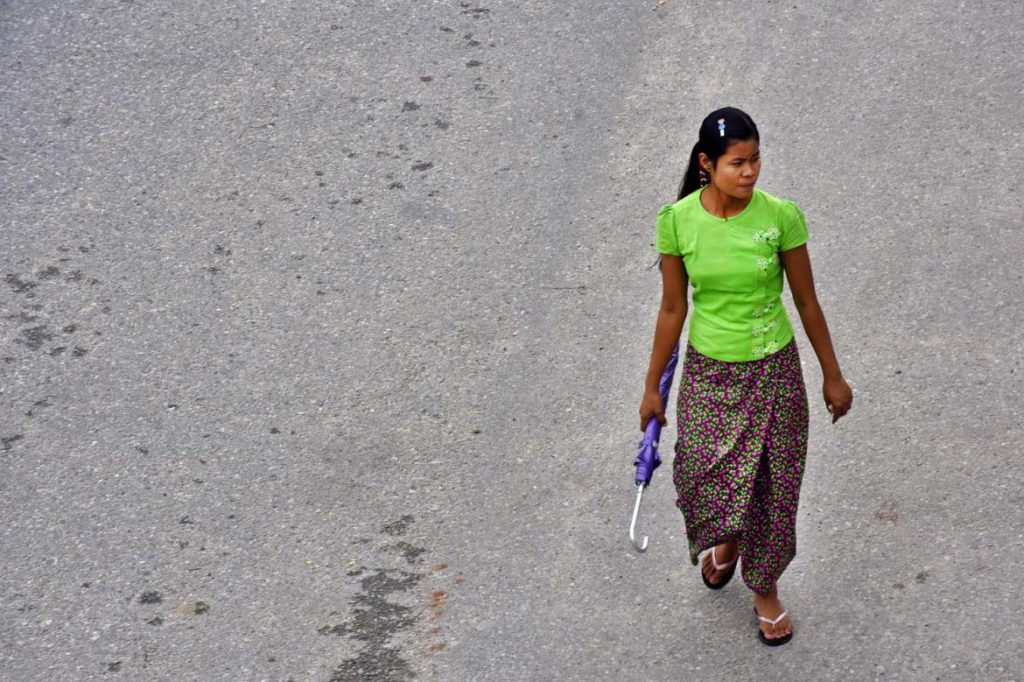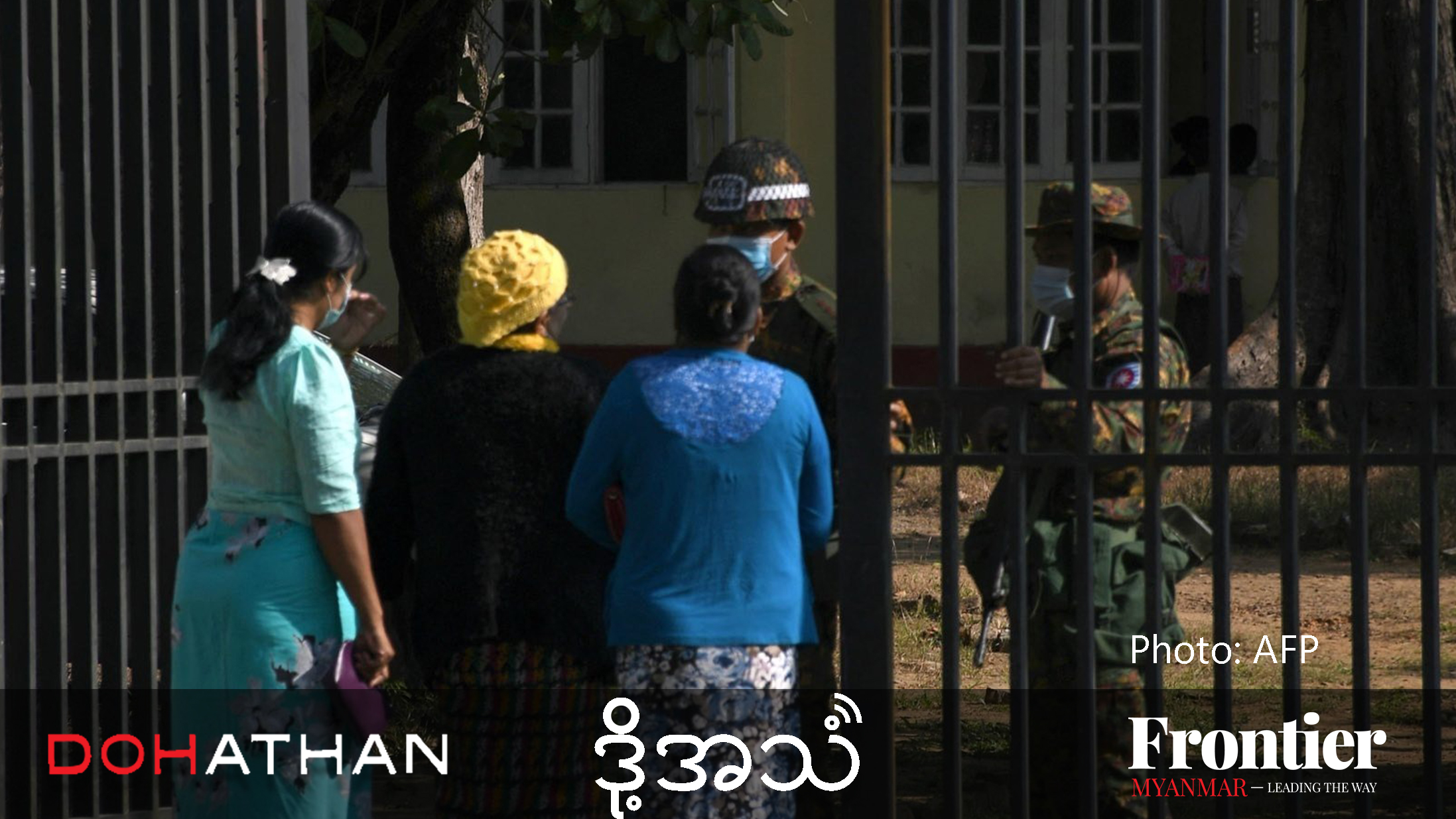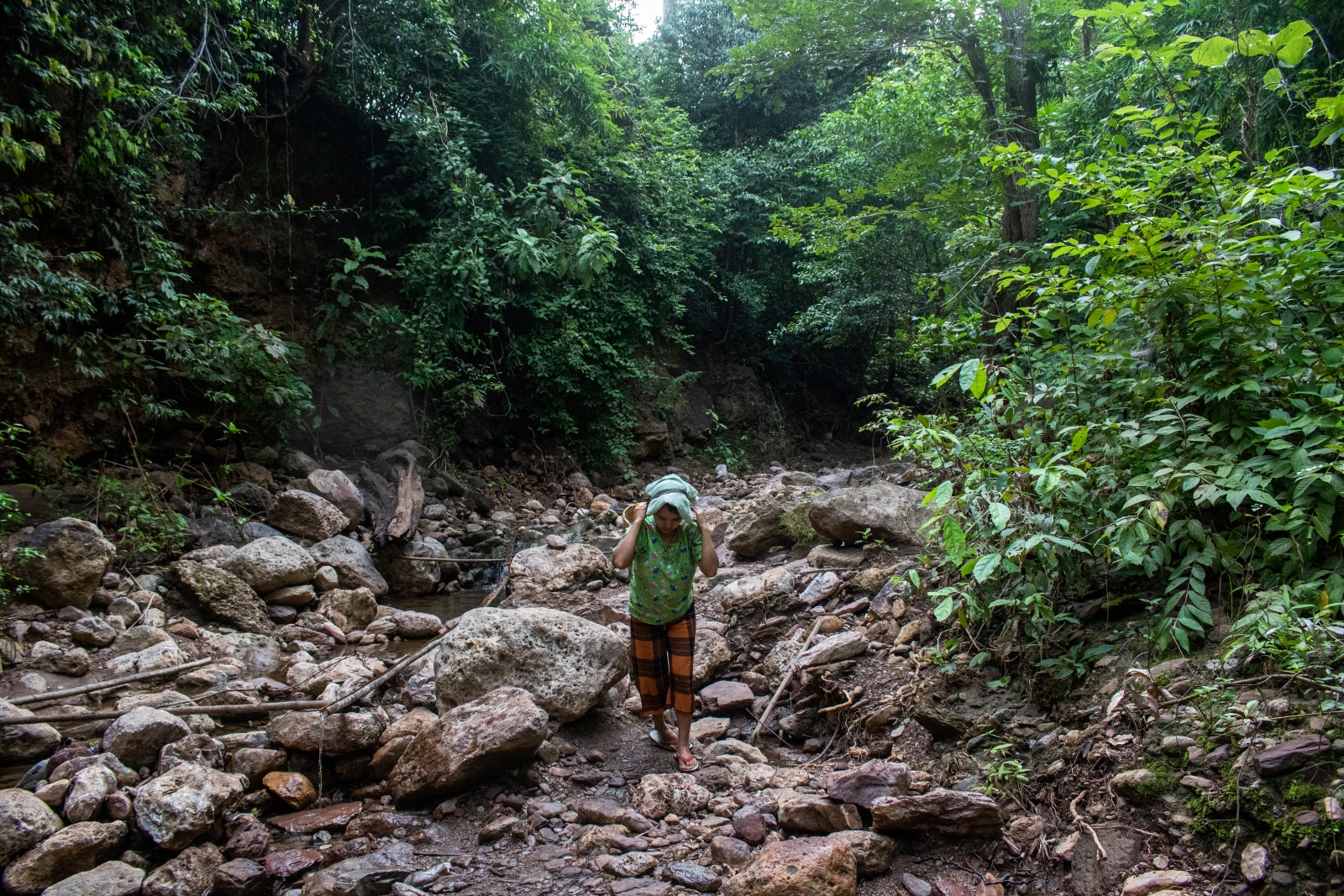A sharp rise in reported rapes has been blamed on the absence of a single, comprehensive law aimed at giving greater protection to women.
By SU MYAT MON | FRONTIER
WOMEN ARE grossly underrepresented in leadership roles in Myanmar and continue to experience widespread discrimination, despite comprising more than 50 percent of the population.
A sharp increase in reported cases of rape in recent years has prompted calls for a special law to protect women in Myanmar, which signed on to the United Nations Convention on Discrimination Against Women in 1997.
Campaigners for gender equality are concerned that most women have only a slim grasp of the laws that affect them.
Yangon resident Ma May Zin, 22, said she is often harassed by men in public but never responds to their comments because it would invite disapproval in a society in which women are expected to be quiet, demure and modest.
Support more independent journalism like this. Sign up to be a Frontier member.
“Because they are men and I am a woman I have no intention of responding,” she told Frontier.
May Zin said she was not aware of any laws aimed at protecting women and their dignity.
Daw Nyo Nyo Thin, who founded the School of Law, Gender & Politics in Yangon in August last year, said most of the laws relating to women need to be amended or abolished.
A failure to act on laws that discriminate against women has been a weakness of past and current governments, said the former Yangon Region Independent MP, who lost her Bahan-2 seat to a National League for Democracy candidate in 2015.
Nyo Nyo Thin noted particular concern about laws involving rape and sexual harassment.
Most women were reluctant to report being victims of rape or sexual harassment because they did not want to give evidence in court, she said.
However, the 1872 Evidence Act was amended in 2015 to allow evidence to be given via video conferencing or a live television link, subject to a court’s permission. The grounds for granting such permission include when a witness is aged under 16 and if the court believes it is in the interests of justice.
Nyo Nyo Thin said the amendments were an improvement but were ultimately insufficient.
Another deterrent is the cost of hiring a lawyer. “Most of the women who have been raped are poor, so they cannot afford a lawyer,” she said.
Nyo Nyo Thin said the situation had contributed to a rise in reported rape cases: “The increase in the violations of women is because the law does not provide justice.”
Asked about the support available for women, Daw Ni Ni Myint, 40, who has a snack shop in Yangon’s Tarmwe Township, said she knew of the Myanmar Women’s Affairs Federation, a non-government group formed in 2003 that has conducted campaigns aimed at preventing women from becoming victims of domestic violence and human trafficking.
She praised the work of the federation but said she knew of no laws aimed at protecting women.
Ni Ni Myint said she was concerned about the reported increase in rape, including child rape.
Figures released by the Myanmar Police Force show that 1,405 cases of rape, including 897 of girls aged under 16, were reported in 2017, up from 1,100 reported cases, including 671 victims aged under 16, the previous year.
From January to May this year, there were 682 reported cases of rape, of which 458 victims were aged under 16, according to MPF figures cited by Amyotha Hluttaw MP Naw Susanna Hla Hla Soe (NLD, Yangon-10), secretary of the parliamentary Women and Children’s Rights Committee.
“I wish the government would take effective action to reduce rape,” Ni Ni Myint said.
Yangon Region MP Daw Kyi Pyar (NLD, Kyauktada-1) said a special law was needed to protect women, “just like in other countries”.
She said women were the targets of too much harassment. “People in Myanmar think women’s bodies are for making jokes about,” she said, adding that most men had no respect for gender equality.
Kyi Pyar said a lack of knowledge about the law meant that many women are unaware they have been the victims of crime.
She said there were many organisations working for women’s rights, but there was a constraint on what the government could do because the budget allocated to the Ministry of Social Welfare, Relief and Resettlement, which conducts training to empower women, was inadequate.
“Women need more protection, including through the provision of legal aid and the establishment of more emergency shelters,” Kyi Pyar said.
Ayeyarwady Region MP U Khin Win (NLD, Zalun-2), who chairs the assembly’s bill committee, said few citizens had knowledge of the country’s many laws, including those aimed at protecting women.
He said it would be preferable to consolidate the laws aimed at protecting women’s rights in one law.
Khin Win said most women needed to learn more about the 2008 Constitution, which guarantees equal rights to legal protection, and about the Penal Code and laws on trafficking and monogamy.
“Of course, having laws is not enough. They also need to be enforced, and that is lacking in Myanmar,” he said.
A booklet launched in June to educate women about the law has received positive feedback, said Daw Nway Nway Tun, executive director of youth-led civic group Charity-Oriented Myanmar, founded in 2005 to promote democratic culture and economic development.
The 68-page booklet, Key Laws Impacting Women in Myanmar, was jointly published by COM and the Asia Foundation, an international non-profit development organisation based in San Francisco.
There has been praise for the booklet from MPs and those who conduct women’s empowerment programmes, as well as trainees, Nway Nway Tun said.
She said they greatly appreciated the book because there was no other publication focusing on women and the law.
Nway Nway Tun said 10,000 copies of the book had been printed and expressed hope it would encourage moves to strengthen laws aimed at protecting women and their rights.







